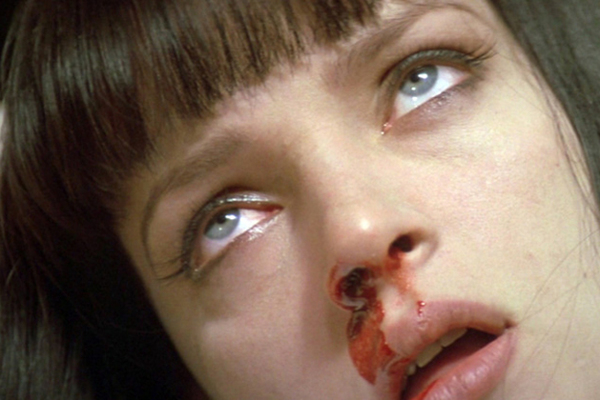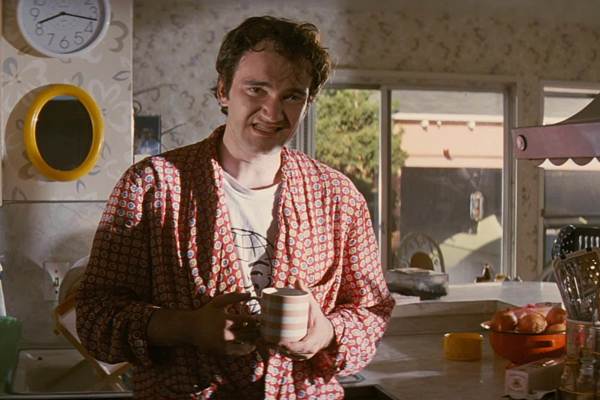
Pulp Fiction is without a doubt one of the most popular and influential movies of all-time. Beloved by critics and cinephiles, and revered by many contemporary filmmakers as the motion picture that inspired them to make their own films, Quentin Tarantino’s 1994 follow-up to his debut, Reservoir Dogs, is a modern classic. Its influence on popular culture is arguably unparalleled, with lines still quoted on a daily basis, over 20 years after its release.
“You get intoxicated by it, high on the rediscovery of how pleasurable a movie can be” - Owen Gleiberman
“A new phenomenon, the movie whose style is created from the context of movie life rather than real life", says Ken Dancyger.
Pulp Fiction is arguably the definitive movie for Generation X: apathetic, wry, and ironic. Saying that, it is not perfect; like all pictures, it has its own flaws and faults and shortcomings which does not ring well with me. I am sure all of us out there feel it but never want to admit it!
I assume that all of you who have sustained their interest till now have watched this movie already and I am not going to delve into the plot right now, instead I am just going to state what did not work for me in the movie.
Problem no.1: "The Bonnie Situation" was boring.. yes I said it. It was "Boring"
----------------------------------------------------------------------------------------
Pulp Fiction is made up of three distinct chapters, though the movie actually consists of five stories: these are “Vincent Vega and Marcellus Wallace’s Wife,” “The Gold Watch,” and “The Bonnie Situation.” The fourth and fifth chapters remain unnamed, but these are the diner scene that opens the movie, and the scenes with Vince and Jules as they encounter Brett and his goons (also where Jules unleashes his famous “great vengeance” speech).
The first four chapters – that is, the unnamed chapters, “Vincent Vega and Marcellus Wallace’s Wife,” and “The Gold Watch” – are each equally watchable and deliciously entertaining from start to finish. But by the time Pulp Fiction gets around to “The Bonnie Situation,” some of the film’s energy falls away and things never really picks up again until the final scene, in which Jules confronts Pumpkin and Honey Bunny in the diner.
“The Bonnie Situation” just doesn’t have enough of the tension or vitality of the previous chapters, and as a result – and despite the appearance of Winston Wolfe – Pulp Fiction begins to lag at Jimmy’s house. The scene feels stretched out and lacks the tightness of what came before. Thus, the skillful momentum of the picture – arguably perfect up until this point – is brought to a disappointing halt

Problem no.2: It offers nothing to yearn for!
-----------------------------------------------------
When you think about it, Pulp Fiction isn’t about anything it all. It doesn’t stand for anything, it doesn’t tell you anything. ANYTHING.
Though one could certainly argue that its vapid nature is actually the very point of the movie, that the very intention of Pulp Fiction is as tribute to the vacuous, popular culture-obsessed nature of the ’90s, so what? On a fundamental level, Pulp Fiction has nothing to say – it is fun and exciting and cool and perhaps even brilliant for the most part, but it’s a hollow experience.
In Sam Moore’s essay exploring Pulp Fiction’s twenty years legacy, he echoes the aforementioned idea that the film has nothing to say, but he adds to this criticism when he writes that Pulp Fiction “doesn’t make you feel anything.” The emphasis here is on the word “feel,” in the emotional sense – and he’s completely right.
Pulp Fiction, after all, is more concerned with crafting cool scenes and dropping badass musical cues than it is with getting the audience to feel anything. The movie is essentially the cheeseburger that Jules and Vince talk about during the car ride at the beginning; you eat it and you feel good in the moment, but nothing afterwards. Because Pulp Fiction doesn’t want you to empathize or sympathise. It doesn’t want you to relate to anything.
Jackie Brown, Tarantino’s most underrated movie, works in the opposite way. Audiences are made to care about characters like Jackie and Max, and the film is stronger as a result. It doesn’t take away from the fact that – just like Pulp Fiction – it’s essentially a homage built out of other movies, but it does give the movie something that Pulp Fiction sorely lacks: soul.
However you look at it, a piece of art with a legacy as huge as this one that also has nothing of importance to say… well, it’s a sad state of affairs, really.
Problem no.3: Quentin Tarantino as an actor
-------------------------------------------------------
Need I say more?

Problem no.4: Non-Linear Narrative Is Ultimately Pointless..though cool, its pointless
------------------------------------------------------------------------------------------------------------

One of Pulp Fiction’s defining features – if not its most defining feature – is its non-linear narrative – a flourish that Tarantino borrows from films of the French New Wave in order to make what are arguably three stories more compelling than if audiences viewed them in chronological order.
But apart from rendering events in a way that makes just a few individual moments more “shocking” (the moment when Vincent is killed, for example, only to seemingly return to life in the next chapter; the moment where audiences realize that at the end of the movie they’re in the same diner as they were in the beginning), the effect is ultimately inconsequential.
There is no “need” for the movie to be non-linear. It doesn’t serve a purpose as it does in a film like Memento, where the technique is used to convey the frustration felt by its amnesia-clad protagonist. Ultimately, Tarantino makes his picture appear far more clever than it actually is in his use of a non-linear narrative; it has no true bearing on the story being told.
That's it! I finally have said those things that had me in doubts about my taste in movies for years.
Pulp Fiction is not QT's best! It might have been revolutionary - I am not old enough to comment on that. But as a movie, it did not engage me like the other masterpieces from Tarantino!
Having said that, I don't mean to disrespect one of the greatest creators of our generation, Quentin Tarantino. Just that I feel there are better movies of QT that deserve the praise and the adulation that Pulp Fiction gets.
Unlike the movie, I hope you could in someway relate to my thoughts about Pulp Fiction :)